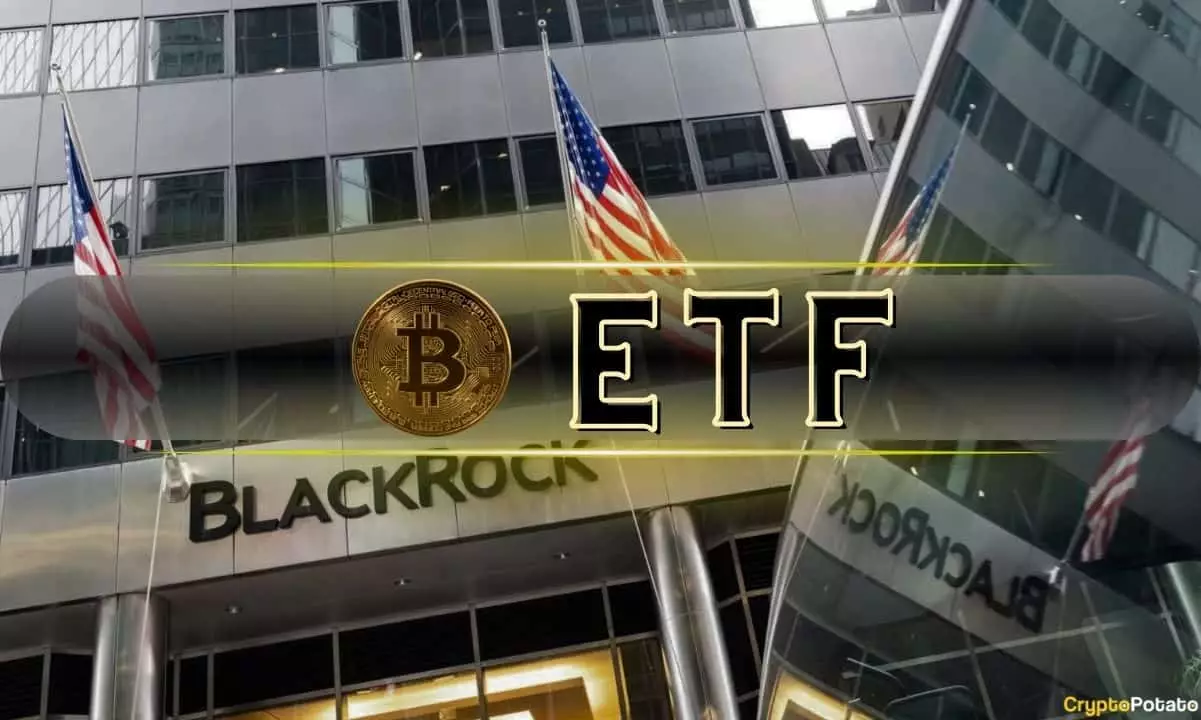On October 21, the cryptocurrency market witnessed a significant influx of investments as BlackRock’s iShares Bitcoin Trust (IBIT) acquired 4,869 BTC, valued at approximately $329 million. This remarkable inflow has occurred amidst a general retreat in crypto markets, where other Bitcoin exchange-traded funds (ETFs) experienced outflows. Notably, while Fidelity’s Bitcoin ETF demonstrated a modest inflow, the majority of funds reported either stagnant growth or net capital withdrawals. This scenario raises pivotal questions about investor sentiment and market positioning within the current landscape.
Such an assured investment from a heavyweight like BlackRock not only indicates a vote of confidence in Bitcoin as an asset but also highlights the growing institutional interest in cryptocurrency. Over the past week, the total inflow into IBIT amounted to $1.47 billion, marking an unprecedented sixth consecutive day of positive inflows. Since launching in January, the fund has impressively garnered over $23 billion in total inflows, showcasing its rapid ascension within the ETF market.
Comparative Performance Against Competitors
According to Nate Geraci, President of ETF Store, the recent surge in IBIT’s inflows positions it among the leading ETF launches of 2024, a notable feat considering the competitive landscape of over 570 ETFs. The performance of IBIT also accentuates its robust position in the broader market, with its assets under management now ranking within the top 2% of all ETFs. This underscores not only BlackRock’s effective market strategies but also the increasing acceptance of Bitcoin by traditional finance players.
In contrast, Fidelity’s Bitcoin ETF (FBTC) also benefited from a minor yet consistent inflow of $5.9 million, albeit while many other ETFs like Bitwise and Grayscale encountered declines. The cumulative impact of these competing products reflects a challenging environment for attracting investments, particularly as investor preferences may shift in light of recent market volatility.
Challenges for Ethereum and Broader Market Trends
The situation for Ethereum ETFs appeared considerably less favorable. Preliminary reports indicated a net outflow of $20.8 million in the Ethereum space, significantly impacting funds such as Grayscale’s ETHE, which suffered a staggering $29.6 million outflow. This ongoing decline exacerbates concerns related to high-management-fee structures within these funds, prompting investors to reallocate their assets to more promising opportunities.
As Bitcoin faced a minor retracement of 3.3% from its recent highs, market analysts noted high leverage and increased futures open interest, which could contribute to further fluctuations. This volatility showcases the inherent risks in the cryptocurrency segment, which frequently influences altcoins disproportionately harder than Bitcoin itself.
As Bitcoin gradually moved back to $67,500 following the pullback, it remains crucial for both institutional and retail investors to navigate the complexities of the current market. The combination of large fund inflows juxtaposed with withdrawals from Ethereum suggests a bifurcated market, where strategies must be aligned with shifting investor sentiments and asset performance trends. Altcoins continue to face challenges, with total market capitalization reportedly falling to $2.44 trillion, an indicator of the broader correction occurring in the digital asset ecosystem.
While BlackRock’s decisive moves within the Bitcoin market signal promising potential, ongoing challenges for other assets like Ethereum highlight the volatile and rapidly evolving nature of cryptocurrency investing.


Leave a Reply